counter-urgency :: writing / performance / social practice
Workshops take place M/T/Th/F from 9:30am-12:00pm, 9:00am for Printshop
Monday, 6/26
1:00–2:30 Opening Panel: counter-urgency :: writing / performance / social practice Panelists: Anne Waldman (chair); Layli Long Soldier; Thurston Moore; Sandra Simonds; Tongo Eisen-Martin
3:00–4:00 :: MFA Lecture :: Stella Corso
Tuesday, 6/27
1:00–2:30 :: Lecture :: Vincent Katz :: “At First Sight: Poetry & Art in the Mimeo Revolution”
3:00–4:00 :: Artist Talk :: Ronaldo Wilson
7:00–9:30 :: Faculty Reading:
TBA, Vincent Katz; Sandra Simonds; Edwin Torres
Wednesday, 6/28
1:00–3:00 :: Dharma Arts :: Giovannina Jobson
7:00–9:30 :: SWP Staff Reading
Thursday, 6/29
1:00–2:00 :: Artist Talk :: Anne Waldman :: “Bard, Kinetic”
3:00–4:30 :: Student Panel
7:00–9:30 :: Faculty Reading:
Amy Bobeda; Valerie Hsiung; Layli Long Soldier; Tongo Eisen-Martin
Friday, 6/30
1:00–2:30 :: Artist Talk :: Edwin Torres
3:00–4:00 :: Colloquium 7:00–9:30 :: Student Reading
Saturday, 7/1
7:00–9:30 :: Faculty Reading:
Jeffrey Pethybridge; Ronaldo Wilson; Thurston Moore; Anne Waldman and Fast Speaking Music
Workshop Faculty for Week 3
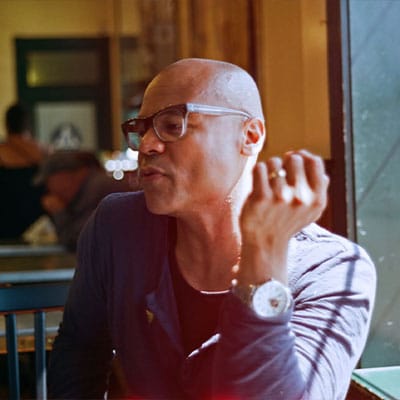
Selfish Compositions / Selfless Figurations / Four Forms :: Ronaldo Wilson
This course asks students to work across, in, and beyond the realm of self-representation to unveil possibilities in the construction of selfish composition which I imagine as a realm both ever generous and greedy, and as carefully inventive as it is an interventionist act of selfless figuration. Our class will ask how the self (ours/yours/theirs/we) might need to decompose in the face of so many of the markers of who we may think we are, how we are perceived, and what’s possible in exploring radical interrogations of a constantly negotiated ‘self’ through some familiar writerly and artistic forms. To this end, we will engage in four, more or less, standard units of measure: the paragraph, its linked set or sentences that drives and demands the rhetorical subjective; the portrait, whether pen, ink, paint, sculpture, or video, how these reflective surfaces reveal us; the poem, its lines, space, sound, pattern that often catches and releases one and everything; the performance, tracking our body, sounds, moves, sites, inside and outside as we make. Through each of these four measures, our goal will be to play, practice and to make work, across them, that explores ourselves, our histories, habits, communities, tendencies, dreams, desires, as we look to a number of writers and artists working in poetry, prose, art, and performance including: Cecilia Vicuña, John Keene, Renee Gladman, Fred Moten, William Kentridge, Duriel E. Harris, Sade Lanay, Wangechi Mutu, Faith Ringgold, Vidhu Aggarwal, Torkwase Dyson, Nikki S. Lee, Wayne Koestenbaum, and others, to guide us in our own selfish compositions as selfless figurations.
Ronaldo V. Wilson, PhD, is the author of Narrative of the Life of the Brown Boy and the White Man (University of Pittsburgh, 2008), winner of the 2007 Cave Canem Prize., Poems of the Black Object (Futurepoem Books, 2009), winner of the Thom Gunn Award for Gay Poetry and the Asian American Literary Award in Poetry in 2010. His latest books are Farther Traveler: Poetry, Prose, Other (Counterpath Press, 2015), finalist for a Thom Gunn Award for Gay Poetry and Lucy 72 (1913 Press, 2018). Co-founder of the Black Took Collective, Wilson is also a mixed media artist, dancer and performer. He has performed in multiple venues, including the Pulitzer Arts Foundation, UC Riverside’s Artsblock, Georgetown’s Lannan Center, Dixon Place, the Atlantic Center for the Arts, and Lousiana State University’s Digital Media Center Theater. The recipient of fellowships from Cave Canem, the Djerassi Resident Artists Program, the Ford Foundation, Kundiman, MacDowell, the National Research Council, the Provincetown Fine Arts Work Center, the Center for Art and Thought, and Yaddo, Wilson is Associate Professor of Creative Writing and Literature at U.C. Santa Cruz, serving on the core faculty of the Creative Critical PhD Program, and co-directing the Creative Writing Program.
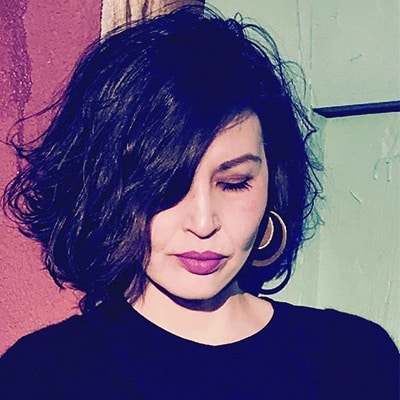
Documentary Poetics: Finding the Poem that Must Write Itself :: Layli Long Soldier
In the NourbeSe Philip’s Notanda to Zong!, she writes that “there are always at least 2 poems—the one you want to write and the other that must write itself.” In this workshop, we will read various works that fall under the umbrella of documentary poetics, we’ll examine their approaches and try similar techniques and methods for our own poems. Yet, this workshop is to be understood as time set aside for process—to create with looseness, receptivity, conversation and comradery, and a willingness to learn from what doesn’t work as much as what does. We will do all this in humble attempt to welcome the poem that “must write itself.”
Students will bring one document for their personal engagement during our week together. This may include legal or governmental documents, historical texts, a dictionary, published articles, video or film transcripts; or personal ephemera such as family correspondence or photos. We will read and discuss poems by NourbeSe Philip, Jordan Abel, Diana Khoi Nguyen, Anthony Cody, Solmaz Sharif, Philip Metres and more!
Layli Long Soldier holds a B.F.A. from the Institute of American Indian Arts and an M.F.A. from Bard College. Her poems have appeared in POETRY Magazine, The New York Times, The American Poet, The American Reader, The Kenyon Review, BOMB and elsewhere. She is the recipient of an NACF National Artist Fellowship, a Lannan Literary Fellowship, a Whiting Award, and was a finalist for the 2017 National Book Award. She has also received the 2018 PEN/Jean Stein Award, the 2018 National Book Critics Circle Award, a 2021 Academy of Arts and Letters Award for Literature, and the 2021 Michael Murphy Memorial Poetry Prize in the UK. She is the author of Chromosomory (Q Avenue Press, 2010) and WHEREAS (Graywolf Press, 2017). She is a mentor in the MFA Creative Writing Program at the Institute of American Indian Arts and resides in Santa Fe, New Mexico.
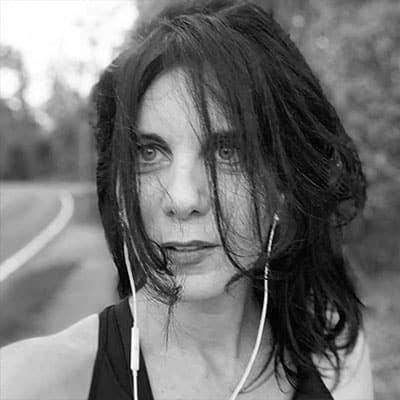
Communal Hauntings and the Creative Spirit :: Sandra Simonds
It can be argued that literature is a collection of ghosts. But what exactly are ghosts? What do they want to say to us? This workshop will explore the idea of the ghostly—the traces, residues, murmurings and doppelgangers of our past. These utterances are marked in texts like musical notes that can give us sonic and visual glimpses into ourselves, communities and social relations. This workshop will help you explore several techniques for making contact (physical, spiritual and emotional) with the ghosts of the past in order to guide you through your own creative processes. Techniques will include investigating and interacting with archival images and sounds, tarot card readings, writing exercises that focus on hybridity and, if it feels right, at the end of the week, a séance. An example of an assignment would be to photograph a ghost. Materials for creative interaction and discussion will include a 19th century ghost story, Victorian spirit photography, and listening to the earliest sounds ever recorded.
Sandra Simonds is a poet and critic. She is the author of eight books of poetry including Triptychs (Wave Books, 2022) and Atopia (Wesleyan University Press, 2019). She is also the author of the novel Assia (Noemi Press, 2023) based on the life of Assia Wevill. This novel explores intergenerational trauma, suicide and aspects of the author’s own experiences as the granddaughter of Holocaust survivors and combines these topics with 20th century poetry mythologies. Her work has appeared in the New York Times, Poetry, the American Poetry Review and elsewhere.
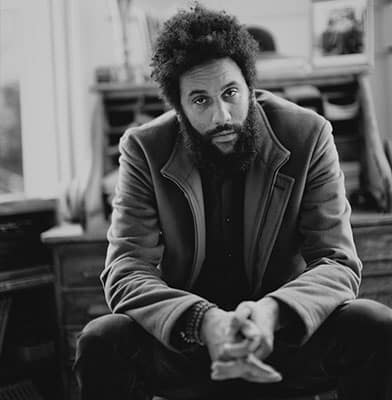
Let Unity Do The Work :: Tongo Eisen-Martin
The objective of this workshop is to share strategies for writing and editing poems generated by the idea that your poetry is a part of your one human experience taking place in and revealed by an interconnected reality. The view of craft as component can wall away potential insight and inhibit writing. Writing strategies that flow from the reality that craft does not have to be a metaphysical, separate entity from you strengthens all internal processes of liberation, importantly including your art. From political to unpopulated realities of the world, all continuums of existence can emerge together in a line of poetry within a cooperation to produce insight. You can let the infinite, natural occurring unities of reality do the work for you on the page. We will also pay critical attention, and practice the recitation and performance of our works.
Originally from San Francisco, Tongo Eisen-Martin is a poet, movement worker, and educator. His latest curriculum on extrajudicial killing of Black people, We Charge Genocide Again, has been used as an educational and organizing tool throughout the country. He is the author of “Someone’s Dead Already”, “Heaven Is All Goodbyes”, “Waiting Behind Tornados for Food”, and “Blood on the Fog”. In 2020, he co-founded Black Freighter Press to publish revolutionary works. He is San Francisco’s eighth poet laureate.
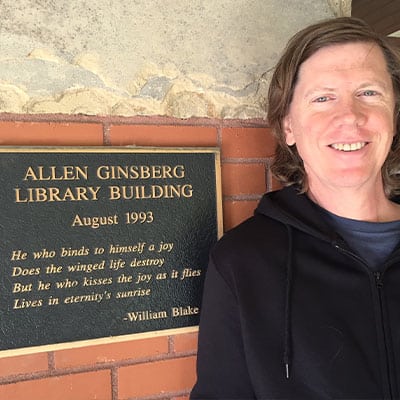
Linger On: Poetry and the Velvet Underground :: Thurston Moore, Eva Moore (Ecstatic Peace Library)
From Lou Reed’s poetry studies with Delmore Schwartz at Syracuse University in the 1960s to the milieu of the Poetry Project where interdisciplinary dynamics of music, art, and poetry colluded, the Velvet Underground, featuring Lou, John Cale, Sterling Morrison, original drummer Angus MacLise, and Nico, singularly defined the model of an experimental rock band intimately engaged with contemporary poetics. A collective of outliers comingling with likeminded visionaries in the heady atmosphere of Andy Warhol’s Factory outposts (Taylor Mead, Gerard Malanga, Ingrid Superstar et al – all intermingling with the downtown poetry world of Ted Berrigan, Tuli Kupferberg, John Giorno et al and) and poetry as film ministrations around the Filmmaker’s Cooperative (Jonas Mekas, Ira Cohen, Piero Heliczer, Jack Smith, Tony Conrad) would situate New York City’s poetry scene as a frictive alternative to the accepted bop prosody of Bob Dylan and the pop lyric beauty of the Beatles. The class will examine all of these crossings through the relationship of rhythm, pulse, meter, playfulness, bloodymindedness, rainbow gender connectivity, vibrational organics and how it has informed the aesthetics of otherness.
Thurston Moore moved to NYC at 18 in 1976 to play punk. He started Sonic Youth in 1980. He edited the music and literary fanzines KILLER, Sonic Death, and Ecstatic Peace Poetry Journal and started the Ecstatic Peace records + tapes label. He has worked collaboratively with Yoko Ono, Merce Cunningham, Cecil Taylor, Rhys Chatham, Lydia Lunch, John Zorn, Takehisa Kosugi, Glenn Branca and Mary Jane Leach. He has composed music for films by Olivier Assayas, Gus Van Sant, and Allison Anders. He presently records and tours both solo, with various ensembles and with his own band who’s most recent recording is Rock n Roll Consciousness. He is senior editor of Ecstatic Peace Library, the poetry imprint Flowers & Cream and has edited books at Rizzoli and Abrams. His own writings have been published through various imprints. Since 2011 Thurston Moore has been on faculty at the Naropa University summer writing program. He resides in London.
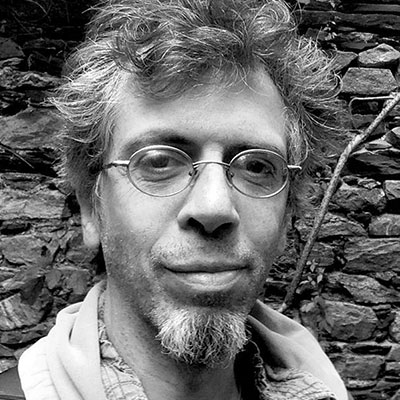
Bodylingo: The Poem’s Body Is Yours :: Edwin Torres
Poets are creatures of awareness, receptive beings that embody transition. Part of allowing the creative process its chance to amaze, is to encourage that trigger into amazement. Structured as a creative laboratory, this workshop will enrich our natural tri-lingual bodies, our speaking-seeing-hearing body, by bringing performance, movement and our sensory capabilities into the writing process to replenish the languages inside us. We will generate, destroy, and re-fathom possibility by examining where the poem beckons to be inhabited—on the page, in the air, we will use interplay, ritual, release, dissonance in all forms to dictate transformative work, to explore where the senses can meet each other, where the poem’s body begins. The materials you would bring to an art class would fit in here; rock, paper, scissors, lingo, body, voice — the materials you would bring to a poetry class.
Edwin Torres’ poetry collections include: Quanundrum: i will be your many angled thing (Roof Books) which received a 2022 American Book Award, Xoeteox: the collected word object (Wave), The PoPedology of an Ambient Language (Atelos), and editor of The Body In Language: An Anthology (Counterpath Press). Multi-disciplinary collaborations with a wide range of cultural nomads have contributed to the development of his bodylingo poetics. He’s received fellowships from the Foundation for Contemporary Arts, New York Foundation for the Arts, DIA Foundation, and The Poetry Fund, among others. His work appears in many anthologies including; New Weathers: Poetics from the Naropa Archives, The Difference Is Spreading: 50 Contemporary Poets on Fifty Poems, and Poets In The 21st Century: Poetics of Social Engagement. Most recently, he received an NEA Grant to organize a multi-disciplinary series in NYC, based on the creative process, entitled “PYP: process/yes/process: a performance series.”
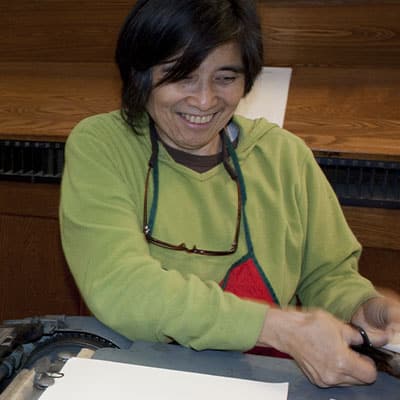
"A Book Is Not a Case of Words": Designing an Artists’ Book :: Julia Seko
Harry Smith Print Shop
“…books are fundamentally interactive reading devices whose meanings, far from being fixed, arise at the moment of access…. Artists’ books continually remind us of the reader’s role in the book by forcing us to reckon with its materiality…” Amaranth Borsuk, The Book
Using the letterpress facilities at the Print Shop we’ll design, print, and bind a small edition of an artist’s book, examining how our choices influence the reader’s unique experience. Participants will learn traditional typesetting and presswork as well as alternative printing techniques and simple binding skills. We’ll discuss design, typography, materials, and embodied knowledge as we together make our way to the finished work.
Julia Seko, letterpress printer, book artist, and proprietor of P.S. Press, is longtime adjunct faculty in the Jack Kerouac School of Disembodied Poetics where she teaches letterpress studio courses. She co-founded the Book Arts League, a local nonprofit letterpress and book arts organization, and is a central figure in the Harry Smith Printshop at Naropa University.
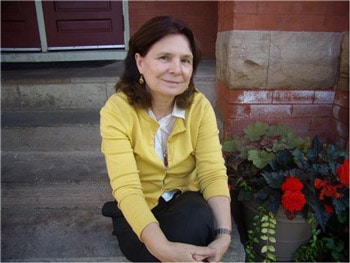
Dharma Arts :: Giovannina Jobson
Giovannina Jobson is an ordained minister in the Shambhala Buddhist tradition, (Upadhyaya) and a graduate of the MA Religious studies Program in Indo-Tibetan Buddhism and Contemplative Religions. Trained by Trungpa Rinpoche, Giovannina is a Dharma artist, social artist and mindfulness instructor. Giovannina has been a practicing Buddhist for over 40 years and is also a Shambhala Training director for Shambhala International. At Naropa she teaches Buddhist Studies courses as well as courses that focus on artistic expression inspired by the lives of renowned mystics from many traditions.
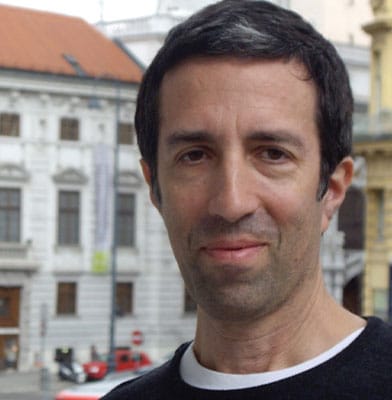
Special Guest :: Vincent Katz
Vincent Katz is a poet, translator, curator, and critic. He earned his BA from the University of Chicago and his MA from Oxford University. He is the author of numerous collections of poetry, including Broadway for Paul (2020), Southness (2016), Swimming Home (2015), Rapid Departures (2005), Understanding Objects (2000), and Cabal of Zealots (1988). He is also co-author of Fantastic Caryatids (2017), a collaboration with Anne Waldman. Interested in perception, panorama, and the layered rhythms of contemporary experience, Katz was described as a “21st century flâneur” by Raphael Rubinstein; his deceptively casual lines are often compared to New York School poets such as Frank O’Hara and Edwin Denby. Katz’s many book collaborations with artists include Alcuni Telefonini with Francesco Clemente (2008), Judge with Wayne Gonzales (2007), and two books with James Brown, Voyages (1994, 2000) and Hyde Park Boulevard (2000), among others.
His translations of Latin poetry include Charm: Sextus Propertius (1995) and The Complete Elegies of Sextus Propertius (2004), which won a National Translation Award. Katz also edited and wrote the introduction to Poems to Work On: The Collected Poems of Jim Dine (2015).
Katz curated a museum exhibition on Black Mountain College and edited the exhibition catalogue Black Mountain College: Experiment in Art (2002, 2013). His poetry and art criticism have appeared widely, and he has taught at the Yale School of Art, School of Visual Arts, Naropa University, the University of Campinas (Brazil), and the Poetry Project. He lives in New York City, where he curated the Readings in Contemporary Poetry series at Dia Art Foundation and edited the 2017 anthology of the same name.
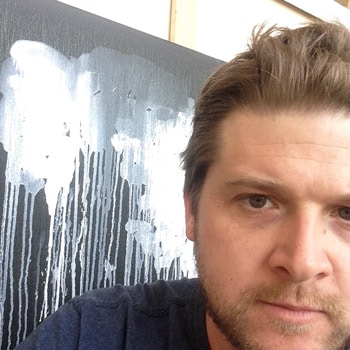
Harry Smith Recording Studio
Summer Writing Program participants (in select workshops each week) may have the opportunity to work in Naropa University’s Recording Studio. Sometimes the projects entail setting their work to music, or recording spoken word poetry, or recording their own poetic songs; oftentimes the recording studio projects are group collaborations, collective sound installations, and other experiments withthe phonotext. Over the year Fast Speaking Music has produced several audio anthologies of student and guest faculty’s recorded work; the Harry’s House cd compilations; here is the link to Volume III: https://spoti.fi/3v19mQP
Ambrose Bye is a musician, engineer, and producer living in Mexico City, and is the co-founder of Fast Speaking Music with Anne Waldman. He has produced over 20 albums and frequently collaborates with poets. Recent productions include “Among the Poetry Stricken” (Clark Coolidge and Thurston Moore) and “Artificial Happiness Button” (Heroes are Gang Leaders). He has worked and performed at Masnaa and the Ecole de la Literature in Casablanca, Le Maison de Poesie in Paris, the fieEstival Maelstrom in Brussels, the Henry Miller Library in Big Sur, Pathway to Paris at Montreal POP 2015, and Casa Del Lago in Mexico City. He has also been involved in the recording studio and workshops at the Summer Writing Program at Naropa University since 2009.
Fast Speaking Music

